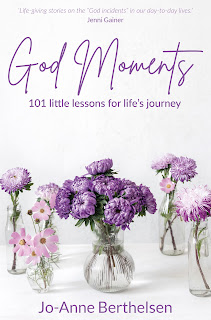You know those prickles of presentiment that signal life changes ahead? Both times I’ve experienced them, they led me into new directions, new lands. The first instance was as our ship forged through sun-shimmering ice to cross the Gulf of Bothnia from Sweden to Finland, my grandfather’s birthplace. A sense of magnetism drew me forward to potent discoveries ahead. They evolved into three books, my Midnight Sun to Southern Cross trilogy. Hear my narration
So I was alert to significance when last year I experienced what a prayer warrior describes as anointing by the Holy Spirit. When I stumbled onto a documentary The Singing Revolution (trailer) I felt inspired and riveted by a similar conviction.
Soviets oppressed the three Baltic states until 1991. Finns are the only people to have repelled the Bear Next Door. It cost them. Nations fight with bullets and blood.
Estonians gained freedom with unique potent weapons—their voices. They won independence through sound—singing. And silence. In 1989, two million Baltic citizens stood, hands joined, for fifteen minutes in a 600 kilometre human chain called the Baltic Way. They demanded independence, protesting the 50-year anniversary of the 1939 secret protocols of the Molotov-Ribbentrop Pact. Their silent protest echoed all around the world to Moscow.
‘There’s a story in this!’ It so resonated with the musician in me. But I must research first-hand. Google satellite doesn’t float my boat. I resolved to experience Laulupidu, the Song and Dance Festival in Tallinn in early July. I was already booked to give a presentation in our family village in Finland, just the week before. Surprise but no surprise.
Come, join me on my flights across the globe. Once we commit, doors open. People illumined my journey. My travelling companion, cousin Julie shared (with a You’ll-Never-Believe-This! twinkle) that her second cousin lives in Estonia, and could show us around.
Reassuring signals along the way
At Hong Kong boarding lounge a voice called my name. On our same flight was Karel, with the Aussie Estonian choir. They were en route to sing at Song Festival in Tallinn. We would all stay in the Hostel of the Holy Spirit, Püha Vaimu, attached to the medieval Church of the Holy Spirit.
We interrupt your inflight entertainment with DIARY ANNOUNCEMENTS:
• SUBMISSIONS are invited for our third collection Mosaic of Grace.
Fiction or non-fiction to 2000 words, theme is faith. Due 1 November. To launch at (drumroll…)
• SHOWCASE 2-3 May, 2026 in Brisbane
Early bird bookings at https://www.casq.online
Even as my ferry sailed to Estonia, I received an excited message. Karel, the network queen, had connected me with a Finnish couple. Their music ministry had partnered with Püha Vaimu Church of the Holy Spirit for 50 years. I was led there to meet them. Markku Ylipää told me of smuggling into Estonia in the 1980s:
While on a concert and friendship trip to Tallinn with the choir and string orchestra, we smuggled two typewriters into the archbishop's office. They had been modified with the Estonian letter ü. The customs officer opened the bag of a colleague in front of me. It contained lots of sheet music. In my suitcase was a typewriter. The customs officer opened my bag and put his hand on the typewriter. I feared our smuggling was exposed. He looked me straight in the eye and asked "Accordion?" I answered in Russian "Da!" I closed the bag and moved on. The vicar had another typewriter. The customs officer asked, "Is that an accordion too?" Of course, "Da! Da!"
Song Festival was inspiring and uplifting from the hours' long parade of performers to culminate in two spine-tingling performances! En masse, 40,000 voices sang their hearts and souls out, undeterred by rain. All wore ponchos over bright national costumes. Brilliant smiles attested to the power of music and dance to heal traumas of past oppression.
The morning after the Finale day's performance was a scene of hectic hugging before my new Besties scattered to their various lands. I slept in perfect peace for a last night in the emptied hostel of the Holy Spirit.

















